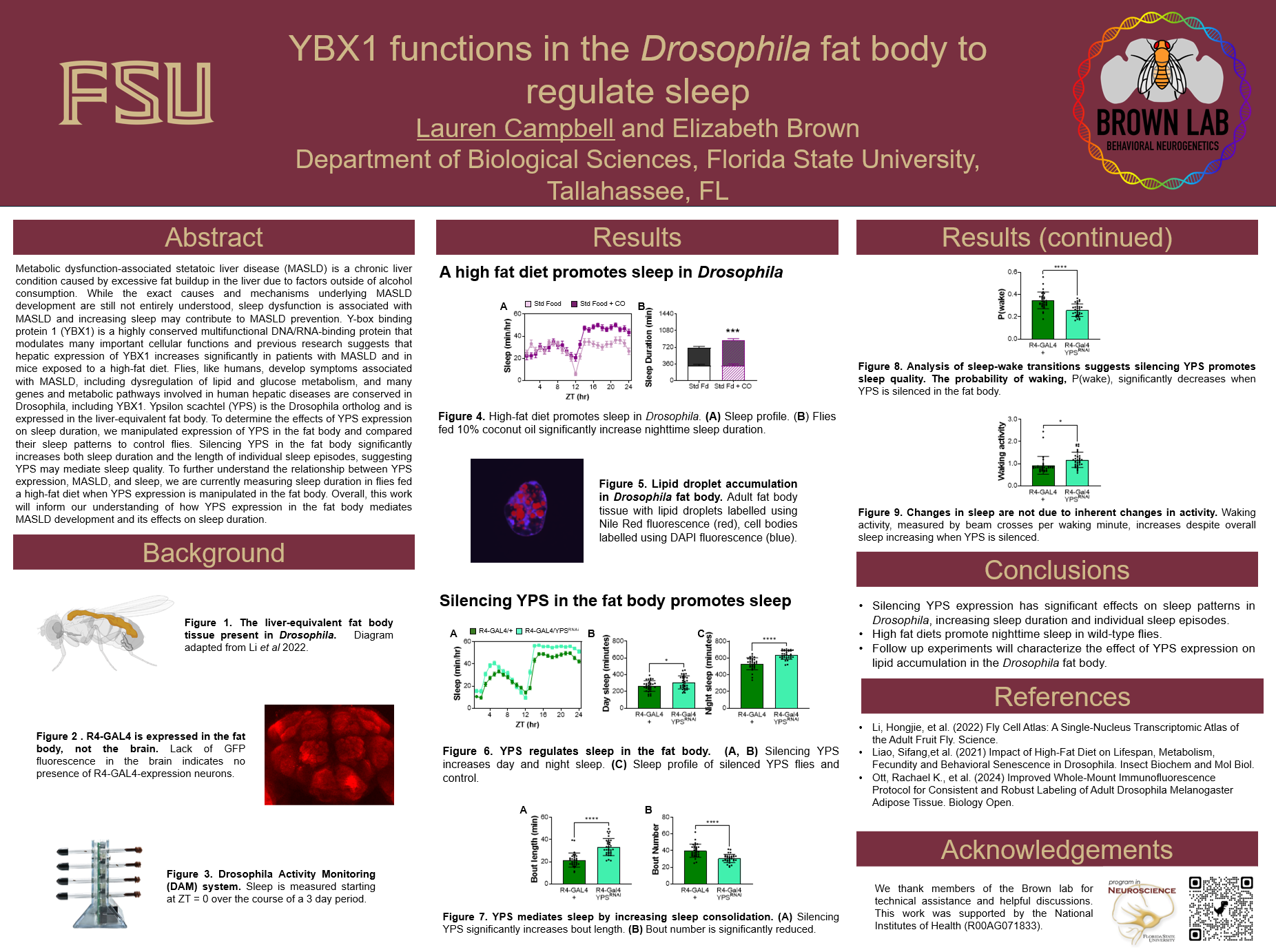Research Symposium
25th annual Undergraduate Research Symposium, April 1, 2025
Lauren Campbell Poster Session 3: 1:45 pm - 2:45 pm/ Poster #162

BIO
I am a current senior seeking a degree in Biological Sciences and have been involved in research with Drosophila as a model organism in the last two years. I am very interested in the field of behavioral genetics and neurobiology, particularly in genetic influences on sleep. I am currently completing an internship with the Brown Lab in the InternFSU program.
YBX1 functions in the Drosophila fat body to regulate sleep
Authors: Lauren Campbell, Dr. Elizabeth BrownStudent Major: Biological Science
Mentor: Dr. Elizabeth Brown
Mentor's Department: Biological Science Mentor's College: Arts and Sciences Co-Presenters:
Abstract
Metabolic dysfunction-associated stetatoic liver disease (MASLD) is a chronic liver condition caused by excessive fat buildup in the liver due to factors outside of alcohol consumption. While the exact causes and mechanisms underlying MASLD development are still not entirely understood, sleep dysfunction is associated with MASLD and increasing sleep may contribute to MASLD prevention. Y-box binding protein 1 (YBX1) is a highly conserved multifunctional DNA/RNA-binding protein that modulates many important cellular functions and previous research suggests that hepatic expression of YBX1 increases significantly in patients with MASLD and in mice exposed to a high-fat diet. Flies, like humans, develop symptoms associated with MASLD, including dysregulation of lipid and glucose metabolism, and many genes and metabolic pathways involved in human hepatic diseases are conserved in Drosophila, including YBX1. Ypsilon scachtel (YPS) is the Drosophila ortholog and is expressed in the liver-equivalent fat body. To determine the effects of YPS expression on sleep duration, we manipulated expression of YPS in the fat body and compared their sleep patterns to control flies. Silencing YPS in the fat body significantly increases both sleep duration and the length of individual sleep episodes, suggesting YPS may mediate sleep quality. To further understand the relationship between YPS expression, MASLD, and sleep, we are currently measuring sleep duration in flies fed a high-fat diet when YPS expression is manipulated in the fat body. Overall, this work will inform our understanding of how YPS expression in the fat body mediates MASLD development and its effects on sleep duration.
Keywords: Drosophila, Genetics, Sleep

